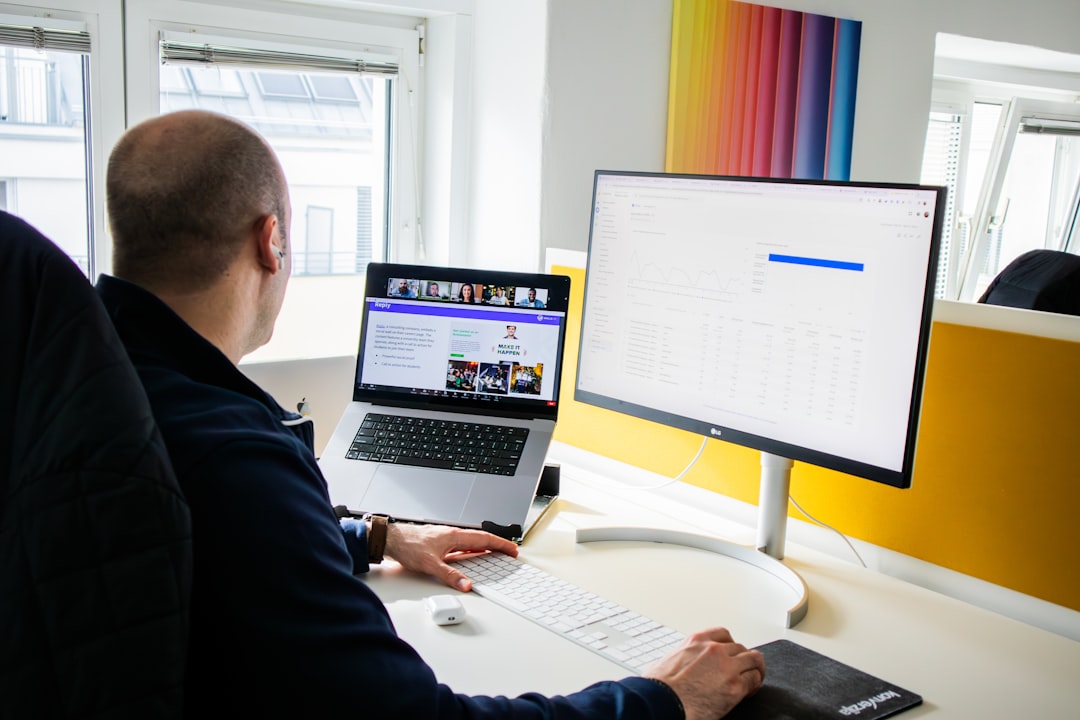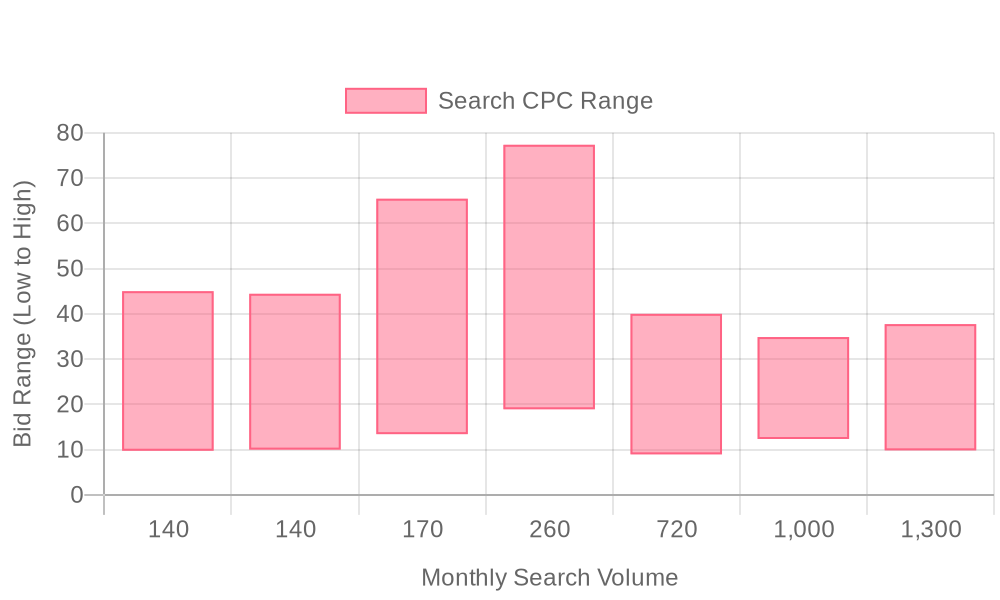
Supercharge your lead generation with a FREE Google Ads audit - no strings attached! See how you can generate more and higher quality leads
Get My Free Google Ads AuditFree consultation

No commitment
Supercharge your lead generation with a FREE LinkedIn Ads audit - no strings attached! See how you can generate more and higher quality leads
Get My Free Google Ads AuditFree consultation

No commitment
Supercharge your lead generation with a FREE Meta Ads audit - no strings attached! See how you can generate more and higher quality leads
Get My Free Google Ads AuditGet My Free LinkedIn Ads AuditGet My Free Meta Ads AuditFree consultation

No commitment
Supercharge your lead generation with a FREE Google Ads audit - no strings attached! See how you can generate more and higher quality leads
Get My Free Google Ads AuditFree consultation

No commitment
In today's competitive landscape, effectively leveraging Google Ads for online event registration could be the crucial element in capturing the right audience at the perfect moment. Given the digital age, intercepting potential attendees when they're actively searching for events bridges the gap between awareness and action, ensuring robust engagement and participation. For marketers zeroing in on online events, this strategy melds online interaction with real-world participation:

B2B event marketers face growing pressure to justify every dollar spent on digital advertising for events. Precision in targeting, messaging, and measurement is essential to convert online event promotion into actual registrants. Leveraging real-time audience insights and unified data streams enables teams to maximize event marketing strategies and drive qualified leads.
A step-by-step approach to Google Ads for event promotion ensures no high-value opportunity is missed. The following framework details each critical aspect of campaign execution, giving B2B teams a clear roadmap for generating measurable ROI from event registration ads.
Start by defining whether your campaign’s primary purpose is to raise broad awareness or to maximize attendance among a specific audience. Awareness campaigns typically cast a wider net, aiming to get your event in front of as many relevant eyes as possible, while attendance-focused initiatives require sharper targeting and engagement tactics. Clarity on these objectives informs every downstream decision, from budget allocation to creative development.
Teams with unified analytics can align their KPIs seamlessly, tracking not just clicks but meaningful actions like registrations and post-event engagement. This alignment transforms your Google Ads campaign for events from a basic marketing sprint into a strategic demand generation engine.
Effective online event promotion relies on accurately profiling your ideal attendees. Use CRM insights to map out key segments, including job titles, company sizes, industries, and past engagement patterns. Many organizations miss high-value prospects because CRM records often lack behavioral data from external channels.
With modern data platforms, marketers can bridge this gap by identifying anonymous site visitors, capturing company-level and individual intent signals. This granular visibility allows you to prioritize efforts toward accounts actively researching your event topics, rather than relying solely on static CRM lists. Audience building becomes dynamic, updating in real time as prospects move through the funnel or demonstrate new interest, ensuring targeting stays relevant throughout the campaign cycle.
Campaigns for Google Ads for Online Event Registration thrive on tightly aligned keyword and audience strategies. Identify search terms with high purchase or registration intent, such as “virtual summit sign up” or “B2B webinar registration,” to connect with prospects ready to take action. Avoid broad or generic keywords that can drive unqualified traffic and inflate costs.
Layering in-market and custom intent audiences enables even greater precision, as you target users who have demonstrated relevant online behaviors. Platforms that integrate with your ad stack can highlight which companies and contacts are spiking in relevant search or content consumption, automatically updating audiences to focus spend on accounts most likely to convert. This approach dramatically improves your ability to reach decision-makers at the optimal moment.
Compelling event registration ads require a clear value proposition and alignment with the user’s search intent. Craft ad copy that directly addresses audience pain points, highlights session benefits, and leverages urgency, such as limited seats or early-bird pricing. Dynamic creative testing, powered by real-time engagement data, quickly surfaces the best-performing headlines and descriptions.
Landing pages must extend this experience by matching the ad’s promise and streamlining the registration process. Avoid generic forms or one-size-fits-all messaging, which lead to poor engagement and high abandonment rates. Instead, personalize landing pages based on audience segment and account, ensuring content relevance and higher conversion rates. Integrating visitor identification technology allows for progressive form completion and smooth handoff of high-value leads into your CRM or sales workflow.
Continuous monitoring is essential for maximizing ROI in Google Ads for events campaigns. Use robust analytics to track intent signals, registration rates, and downstream engagement, not just ad clicks. Real-time dashboards reveal which audiences and creatives are driving the highest conversion value, while advanced attribution models connect online and offline engagement to measure true impact.
Automated audience and budget adjustments keep campaigns agile, reallocating spend toward high-performing segments as new intent data emerges. Integration with CRM and marketing automation systems ensures every registrant is nurtured appropriately, and valuable attendee intelligence flows seamlessly back into future campaign planning. If you’re looking to streamline your event lead generation and drive measurable results, get started for free with Sona. This cycle of measurement and optimization is the cornerstone of sustained growth in event registration tips and results.
Digital-first event marketers face the ongoing challenge of reaching decision-makers at the exact moment their interest peaks. Google Ads delivers a solution by capturing high-intent prospects with immediate visibility, eliminating the lag inherent in traditional marketing channels.
The platform accelerates response times, ensuring that event ads appear precisely when and where potential registrants are actively searching for relevant opportunities. This rapid execution is critical in competitive verticals where event slots fill quickly and attention spans are limited. For more tactics to drive registrations, see our best practices for event marketing.
Google Ads extends reach far beyond the confines of static channels, tapping into the full spectrum of search, display, and video placements across Google’s vast network. This expansive coverage is particularly valuable for B2B events aiming to attract niche audiences or specialized roles that rarely engage with conventional advertising. To maximize the impact of your outreach, consider leveraging real-time audience segmentation for hyper-targeted campaigns.
Marketers gain the ability to follow every touchpoint: from the first click on an event registration ad to the final submission of attendee information. Unlike manual or delayed follow-ups, digital tracking ensures no lead is lost to slow processes. Robust attribution makes it possible to tie every registration back to its original source, giving revenue teams the clarity to refine messaging and budget allocation for future campaigns. Integrating visitor identification and audience sync capabilities further elevates this approach, allowing marketers to target and nurture high-value accounts throughout the event registration journey.

Ready to unify your event marketing and maximize registrations? Get started for free with Sona.
Vertical keyword targeting drives qualified attendees seeking specialized content, making campaigns for Google Ads for Online Event Registration more effective. Niche keyword themes attract high-intent registrants, such as professionals searching for sector-specific summits or technical workshops. By analyzing search trends and segmenting campaigns around these focused terms, marketers can capture demand from audiences overlooked by generic event advertising. For more on building and activating targeted segments, explore real-time audience strategies that help align messaging with precise attendee interests.
Identifying and exploiting competitor gaps with auction insights reveals where your event registration ads can outmaneuver rivals. Reviewing auction metrics uncovers which competitors dominate specific search segments and where their coverage is weak. This intelligence allows revenue teams to strategically allocate budget toward under-served verticals and maximize visibility. When marketers connect real-time engagement data with these insights, they can dynamically shift bid strategy and creative assets to target high-converting accounts as soon as the opportunity arises.
Industry-specific placements ensure your event ads consistently appear on platforms and media frequented by your target audience. Selecting placements within curated networks—such as tech news outlets for developer conferences or HR sites for leadership summits—solves the pain point of missing valuable prospects who might never enter broad search queries. As digital advertising for events grows more competitive, leveraging Google Ads for event promotion can help pinpoint where your audience gathers online and allow for adaptive placement based on actual engagement. Marketers who tie this insight into their campaign structure ensure every impression is focused on relevant, high-value prospects.
Retargeted content like whitepapers and how-to videos maintains a congruent message across all touchpoints, reinforcing brand authority and driving higher registration intent. When a prospect interacts with event landing pages but does not complete registration, synchronizing retargeting sequences re-engages them with educational resources or exclusive previews. Automated audience updates as leads move through the funnel allow for seamless retargeting, ensuring messaging evolves with each interaction. To see how you can streamline this process, get started for free with Sona and elevate your event promotion efforts.
Audience segmentation is the foundation of digital advertising for events, enabling marketers to deliver event registration ads that align precisely with attendee intent. By segmenting audiences based on event type, buyer stage, and behavioral signals, teams ensure that each campaign delivers relevant messaging to the right prospects, increasing engagement and conversion rates for Google Ads for Online Event Registration.
Ready to see how segmentation and automation can transform your event marketing? Get started for free with Sona.

| Industry | Keyword | Monthly Search Volume | Competition Level | Low Bid | High Bid |
| Online Event Registration | online event registration platforms | 140 | LOW | 9.76 | 45 |
| Online Event Registration | online registration platforms | 140 | LOW | 10 | 44.43 |
| Online Event Registration | best event registration platforms | 170 | MEDIUM | 13.42 | 65.43 |
| Online Event Registration | conference registration platforms | 260 | MEDIUM | 18.92 | 77.35 |
| Online Event Registration | online event registration | 720 | LOW | 8.96 | 40 |
| Online Event Registration | event registration software | 1000 | LOW | 12.35 | 34.87 |
| Online Event Registration | event registration platforms | 1300 | HIGH | 9.84 | 37.73 |
A high-impact Google Ads campaign for online event registration depends on precision keyword targeting. Focusing on high-intent attendance terms ensures that your ads reach individuals actively searching for event solutions, such as "Google Ads for events," "event registration ads," and "digital advertising for events." These keywords attract users who are ready to engage, register, or learn more about your offering, dramatically improving conversion rates compared to generic, broad-match terms. For more guidance on optimizing keyword selection for event promotion, see this step-by-step guide to using Google Ads for events.
Aligning your keyword strategy with actual event registration intent allows revenue teams to minimize wasted spend and reduce irrelevant clicks. By continually refining target terms based on search intent signals, marketers can adapt to evolving audience behaviors and preferences. Leveraging real-time intent signals, teams can shift budgets rapidly to keywords that are actively driving qualified traffic and registrations. This dynamic approach eliminates the guesswork of traditional keyword planning and enables a more responsive, data-driven strategy.
Modern platforms further enhance this precision by connecting keyword triggers to dynamic audience updates. As leads interact with your ads and move through the event registration funnel, your keyword lists and audience segments automatically evolve. This real-time feedback loop ensures that marketing teams consistently target the highest-fit prospects, maintain relevance throughout the campaign lifecycle, and maximize return on every ad dollar. By syncing enriched audience data and conversion events directly into platforms like Google Ads and CRM systems, you unlock a seamless workflow for measuring true ROI and scaling successful event marketing strategies.
Effective Google Ads for Online Event Registration begin with precision keyword strategy. Use exact-match and phrase-match keywords with event-specific modifiers, such as “virtual leadership summit registration,” “cloud security webinar tickets,” or “tech conference 2025 sign up.” Avoid broad, catch-all terms that invite irrelevant clicks and erode budget efficiency. With a unified dataset, marketers can surface which keyword themes drive actual conversions by company size, industry, or buyer stage, refining their lists to prioritize terms that historically pull in high-value prospects. When campaign platforms sync with enriched visitor intelligence, teams can exclude low-fit segments and focus spend on high-intent accounts already demonstrating in-market behavior. For a practical guide to using Google Ads for event promotion, review this step-by-step event ads guide.
Ad copy must resonate with the intent and urgency of the target audience. Strong headlines like “Join 2,000+ Executives at the SaaS Growth Summit” or “Secure Your Spot at the AI Innovation Webinar” instantly convey value and exclusivity. Calls-to-action should be direct and actionable, such as “Register Now,” “Save My Seat,” or “Claim Early-Bird Access.” By leveraging real-time audience signals, marketers can dynamically adjust copy to highlight timely offers or address pain points surfaced from in-session activity. Access to up-to-date firmographic and behavioral data allows for tailored messaging that speaks to the priorities of each account segment, increasing relevance and boosting click-through rates.
Landing pages are the pivotal link between ad engagement and event registration completion. Each page should tightly match the promise of its ad, with clear, benefit-driven headlines, concise event details, and a frictionless registration form. Responsive design ensures accessibility across devices, while strategic use of trust badges, social proof, and limited-time offers can drive urgency. When campaign systems integrate visitor identification, teams can personalize landing content based on company, industry, or buyer stage, reducing form fields for known contacts and surfacing tailored CTAs. For best practices on maximizing event sign-ups, see this resource on event registration strategies.
Continuous optimization is fundamental to maximizing ROI in event marketing strategies. Rapid A/B testing of ad creative, keyword variations, and landing page layouts quickly reveals which combinations drive the most registrations. Real-time feedback loops powered by unified campaign data enable marketers to shift budget toward audiences or messages converting at higher rates. Advanced attribution models allow for tracking both online and offline event registrations, providing a holistic view of campaign effectiveness across the funnel. With dynamic audience updates, campaigns automatically retarget warm prospects who engage but don’t convert, while syncing enriched lead data into CRM and marketing automation platforms for follow-up. Explore how to maximize ROI and event attendance using tactical Google Ads strategies.

Expanding your online presence for event registrations requires a blend of strategic advertising, data-driven personalization, and continuous audience engagement. The most effective revenue teams leverage unified insights to drive outreach that aligns with real-time attendee intent and delivers measurable growth in both registrations and qualified leads.
Ready to expand your event registrations? Get started for free with Sona.
Harnessing the power of Google Ads to drive online event registrations is not just a strategic move; it's an essential step toward maximizing your event's reach and impact. By leveraging targeted campaigns, optimized keywords, and compelling ad copy, you can effectively capture the attention of your desired audience and turn clicks into confirmed attendees.
Throughout this article, we've explored the challenges of standing out in a crowded digital landscape and provided actionable strategies to overcome them. From identifying your target audience and setting measurable goals to crafting irresistible ad creatives and monitoring performance, these insights are designed to empower you to make the most of your advertising investment.
Imagine the transformational potential of a well-executed Google Ads campaign—one that not only fills your virtual seats but also amplifies your brand's visibility and credibility. By implementing these strategies, you're not just promoting an event; you're setting the stage for meaningful engagement and long-term success.
To take your event marketing to the next level, start for free and experience our platform's capabilities firsthand. Discover how data-driven insights can refine your approach and deliver the results you seek.
Best practices for using Google Ads for event registration include setting clear goals, identifying and targeting the right audience, selecting precise keywords, crafting engaging ad creatives and landing pages, and continuously monitoring and optimizing campaign performance.
To create an effective Google Ads campaign for an online event, define your objectives, profile your ideal attendees using CRM insights, select high-intent keywords, design compelling ads and landing pages, and monitor campaign performance with real-time analytics.
The budget for Google Ads when promoting an event should align with your campaign goals, targeting precision, and expected ROI. It should be flexible to allow reallocations towards high-performing segments based on real-time data.
Search campaigns, display ads, video ads, and remarketing campaigns are effective for online event registration, each offering unique ways to engage and convert high-intent prospects.
Track the success of Google Ads for event registrations by using robust analytics to monitor intent signals, registration rates, and downstream engagement, while employing advanced attribution models to connect online and offline interactions.
Join results-focused teams combining Sona Platform automation with advanced Google Ads strategies to scale lead generation

Connect your existing CRM

Free Account Enrichment

No setup fees
No commitment required

Free consultation

Get a custom Google Ads roadmap for your business
Join results-focused teams combining Sona Platform automation with advanced Meta Ads strategies to scale lead generation

Connect your existing CRM

Free Account Enrichment

No setup fees
No commitment required

Free consultation

Get a custom Google Ads roadmap for your business
Join results-focused teams combining Sona Platform automation with advanced LinkedIn Ads strategies to scale lead generation

Connect your existing CRM

Free Account Enrichment

No setup fees
No commitment required

Free consultation

Get a custom Google Ads roadmap for your business
Join results-focused teams using Sona Platform automation to activate unified sales and marketing data, maximize ROI on marketing investments, and drive measurable growth

Connect your existing CRM

Free Account Enrichment

No setup fees
No commitment required

Free consultation

Get a custom Google Ads roadmap for your business
Over 500+ auto detailing businesses trust our platform to grow their revenue
Join results-focused teams using Sona Platform automation to activate unified sales and marketing data, maximize ROI on marketing investments, and drive measurable growth

Connect your existing CRM

Free Account Enrichment

No setup fees
No commitment required

Free consultation

Get a custom Google Ads roadmap for your business
Over 500+ auto detailing businesses trust our platform to grow their revenue
Join results-focused teams using Sona Platform automation to activate unified sales and marketing data, maximize ROI on marketing investments, and drive measurable growth

Connect your existing CRM

Free Account Enrichment

No setup fees
No commitment required

Free consultation

Get a custom Google Ads roadmap for your business
Over 500+ auto detailing businesses trust our platform to grow their revenue
Our team of experts can implement your Google Ads campaigns, then show you how Sona helps you manage exceptional campaign performance and sales.
Schedule your FREE 15-minute strategy sessionOur team of experts can implement your Meta Ads campaigns, then show you how Sona helps you manage exceptional campaign performance and sales.
Schedule your FREE 15-minute strategy sessionOur team of experts can implement your LinkedIn Ads campaigns, then show you how Sona helps you manage exceptional campaign performance and sales.
Schedule your FREE 15-minute strategy sessionOur team of experts can help improve your demand generation strategy, and can show you how advanced attribution and data activation can help you realize more opportunities and improve sales performance.
Schedule your FREE 30-minute strategy sessionOur team of experts can help improve your demand generation strategy, and can show you how advanced attribution and data activation can help you realize more opportunities and improve sales performance.
Schedule your FREE 30-minute strategy sessionOur team of experts can help improve your demand generation strategy, and can show you how advanced attribution and data activation can help you realize more opportunities and improve sales performance.
Schedule your FREE 30-minute strategy sessionOur team of experts can help improve your demand generation strategy, and can show you how advanced attribution and data activation can help you realize more opportunities and improve sales performance.
Schedule your FREE 30-minute strategy session





Launch campaigns that generate qualified leads in 30 days or less.
